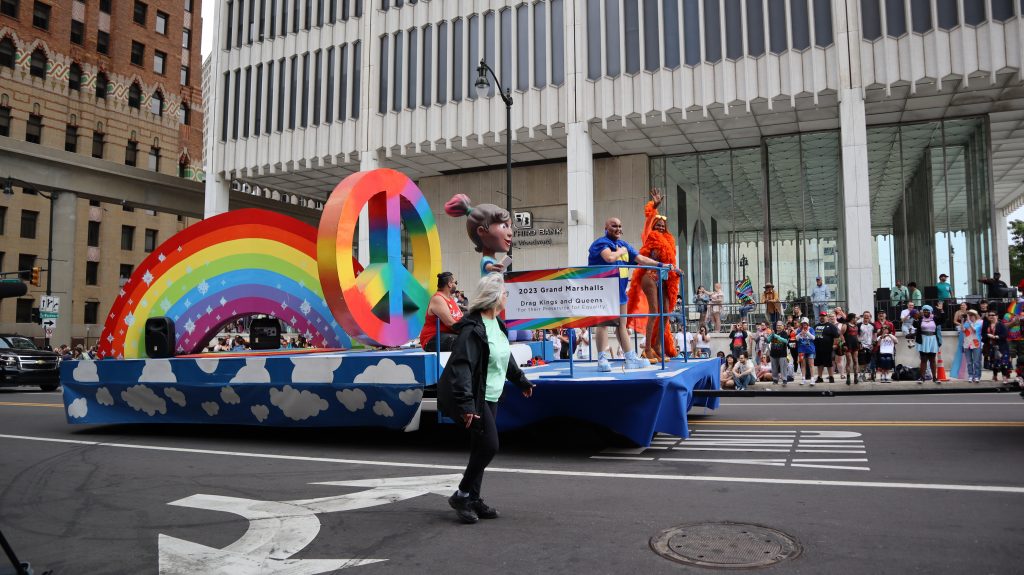Detroit Today: LGBTQ+ acceptance grows in US but challenges remain
Author Michael Bronski and Ruth Ellis Center’s Mark Erwin joined “Detroit Today” to discuss the rapidly evolving LGBTQ+ culture in America.

The Grand Marshals of the 2023 Motor City Pride Parade greet attendees on June 11, 2023, in Detroit.
The Motor City Pride festival returned to Hart Plaza in Detroit, where Gov. Gretchen Whitmer announced the establishment of an LGBTQ+ commission within her administration.
Pride events and announcements like Whitmer’s reveal how public sentiment on LGBTQ+ rights have changed in just the past decade.
According to Gallup, the number of people identifying as LGBTQ+ is up to 7.1% compared to 3.5% in 2012. This is particularly striking for young people as 10% of millennials and 20% of Gen Z adults identify as LGBTQ.
However, several U.S. states led by Republican-controlled legislatures have passed laws harming the LGBTQ+ community, including banning gender-affirming care for transgender youths.
Harvard professor and author Michael Bronski and Ruth Ellis Center executive director Mark Erwin joined Detroit Today to discuss the rapidly evolving culture that has shaped American LBGTQ+ lives.
Listen: How perspectives on queer culture in America changed in the last decade
Guests:
Michael Bronski is a professor of Women, Gender, and Sexuality studies at Harvard University and an author of “A Queer History of the United States.” He says that many recent developments in our cultural, legal and political acceptance of queer people have happened at breakneck speed as extreme connectivity made people more aware of gender roles.
“These advances [throughout recent history] happened because, on some profound level, LGBTQ culture offered a sane alternative to the restrictions of heterosexuality,” says Bronski. “People embraced it because it represented freedom.”
Mark Erwin is the executive director of the Ruth Ellis Center, a Highland Park-based nonprofit that supports LGBTQ+ youth. Erwin stresses the many difficulties that trans people of color face while transitioning, and the need for more governmental support.
“For trans people of color especially, they are vulnerable,” says Erwin. “They’re a vulnerable segment of our community. And rather than targeting them with hateful policies, we need to be finding ways to support them in more meaningful ways.”
Trusted, accurate, up-to-date.
WDET strives to make our journalism accessible to everyone. As a public media institution, we maintain our journalistic integrity through independent support from readers like you. If you value WDET as your source of news, music and conversation, please make a gift today.
